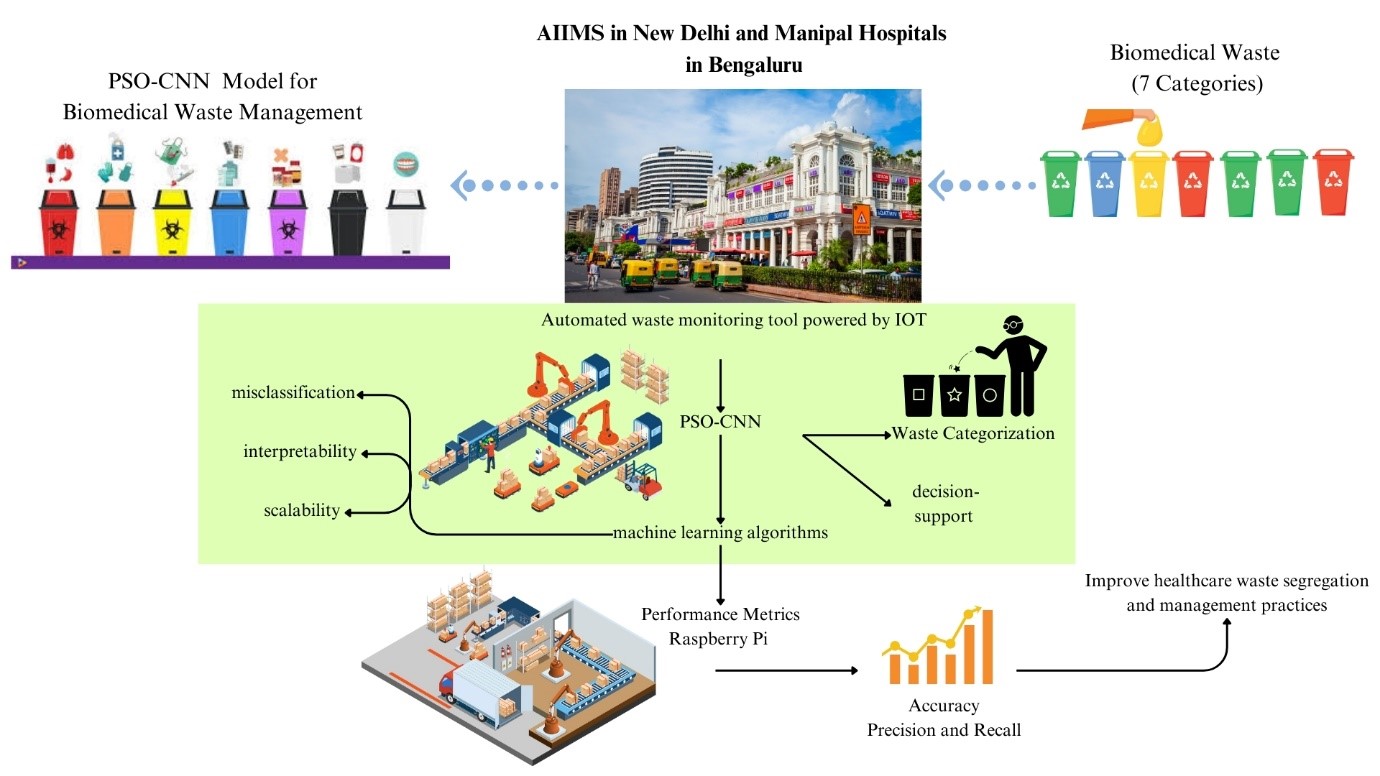- Cite article
- Download PDF
- Share article
- 22 Downloads
Biomedical waste management is critical for maintaining hospital cleanliness and hygiene, pivotal for public health. It introduces a novel approach utilizing a hybrid genetic algorithm GA–fuzzy inference system FIS for smart city waste management. By integrating a dynamic fuzzy inference engine, the system enhances the accuracy and efficiency of waste collection while minimizing errors. Genetic algorithms optimize the FIS to improve waste segregation, specifically developing a GA-fuzzy rule-based system capable of classifying five biomedical waste types. Empirical data collected over six months from Apollo Hospitals and Fortis Malar Hospital in Chennai informs the study, shaping waste characterization and management strategies in healthcare settings. AUTOM, an automatic waste disposal tool, utilizes fuzzy logic for decision-making in segregating medical waste, addressing issues such as potential loss of essential genetic information during traditional genetic algorithm execution. This integration ensures interpretability and efficiency in identifying crucial genes related to waste filling parameters. The system employs cost-effective, compact sensors to ensure scalability and reproducibility. Experimental validation in the Proteus simulator validates the model's robust performance, achieving an accuracy of 96.4%, precision of 96.8%, and recall of 94.8%. This outperformance of existing techniques underscores the GA-FIS model's efficacy in waste classification and management within smart city infrastructures, promising significant advancements in public health and environmental sustainability.
